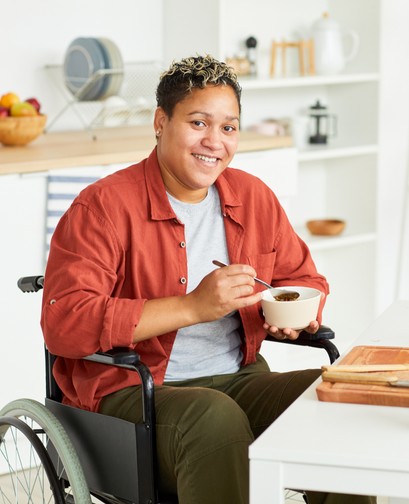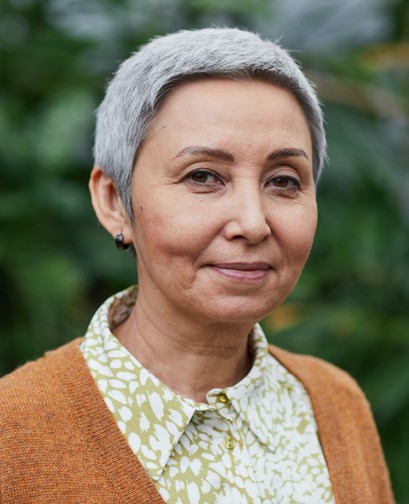If you’re reading this page, chances are that you’re wondering if you might be Autistic. Perhaps you’ve always had a suspicion. Maybe you know other neurodivergent people and recognise a lot of their traits in yourself. Or maybe someone in your life has suggested you may be Autistic. Whatever your reason, first of all, know that you are safe and welcome here, however you identify!
If you think you may be Autistic, you might be wondering where to start to explore that idea – it can all seem a little overwhelming at first, and that’s okay!
First, there’s something you should know: there is no right or wrong way to come to the conclusion that you’re Autistic. Some Autistic individuals explore their potential Autistic identity with a mental health professional and may end up formally identified or diagnosed. Other Autistic individuals explore their potential Autistic identity much more personally through research and resonance with other Autistic people’s experiences. Not every Autistic person has a formal diagnosis. Many of us self-diagnose or self-identify as Autistic based on our own personal research. Any route to your self-discovery is completely valid.
There are many reasons why one might not have or might not pursue a formal diagnosis – cost, accessibility, and availability are just some reasons. Whilst a formal diagnosis can be very helpful in using to apply for funding to help support you (if you are applying to the National Disability Insurance Scheme or NDIS, for example), a formal diagnosis isn’t necessary to tell you that you’re Autistic. However you arrive at the conclusion, you are valid, and you get to identify however you choose.

The journey to understanding your neurotype and identity is unique to you. For some, considering yourself through an Autistic lens will give immediate clarity and it will be clear that being Autistic is who you are, and explains so much of your past experiences. For others, the road will be less sure, and you may doubt or question your Autistic identity – and your non-autistic identity! – many times over before settling into a firm understanding of your neurotype. For some, this journey will be a solo affair, just you and your brain. For others, it will be a collective journey, leaning on and learning from other late-identified Autists. Others still will want to consider their identity with the support of a professional, like a psychologist and counsellor. For some, have the certainty of a formal diagnosis will be vital. For others, self-identifying will be either preferable or necessitated by the many barriers to professional diagnosis. However you find clarity about your identity is absolutely valid, and you are welcome in our community as you explore the way you are in the world.

There are lots of characteristics and traits that are associated with being Autistic, and it’s important to remember that the vast majority of Autistic people won’t display every single characteristic. But we hope this section might provide you with some areas in which you could consider your own functioning, capacity and preferences. We hope this will help to guide you in some small way.
We think it is helpful to think of Autism as a colour wheel or prism, instead of as a linear spectrum. When we think of a linear spectrum, we often want to categorise people into a binary of “more” or “less” Autistic. This isn’t an accurate representation of the complexity of our experiences at all! You may have very strong Autistic characteristics in one area (e.g., sensory differences), but have less marked characteristics in another (e.g., executive functioning). Indeed, your Autistic characteristics are likely to change depending on the context, both internal (e.g., when you’re tired versus when you’re well rested) and external (e.g., when you’re in a safe place with safe people versus when you’re in an overwhelming environment). Importantly, each Autistic person will experience their strengths and challenges completely differently to other Autistic people.

There are some Autistic characteristics that you might have identified in yourself, including:
Of course, this is a brief list, and for more information, you can click the button below to learn more about the differences in communication, socialising, thinking and processing that are common for Autistic people.
Not sure where to start? That’s completely okay! Here are some common questions that many Autistic people have asked themselves on their journey to discovering their Autistic identity that may resonate with some of your thoughts right now.
We’d also like to take this opportunity to let you know that we’re here for you! If there’s something not on this list that you’re not sure about, or if you have a curly question, we will do our best to point you in the right direction! Simply head to our Connect page and get in touch, and we’d be honoured to assist you.

The Reframing Autism team would like to acknowledge the Traditional Owners of the lands on which we have the privilege to learn, work, and grow. Whilst we gather on many different parts of this Country, the RA team walk on the land of the Awabakal, Birpai, Whadjak, and Wiradjuri peoples.
We are committed to honouring the rich culture of the Aboriginal and Torres Strait Islander peoples of this Country, and the diversity and learning opportunities with which they provide us. We extend our gratitude and respect to all Aboriginal and Torres Strait Islander peoples, and to all Elders past and present, for their wisdom, their resilience, and for helping this Country to heal.